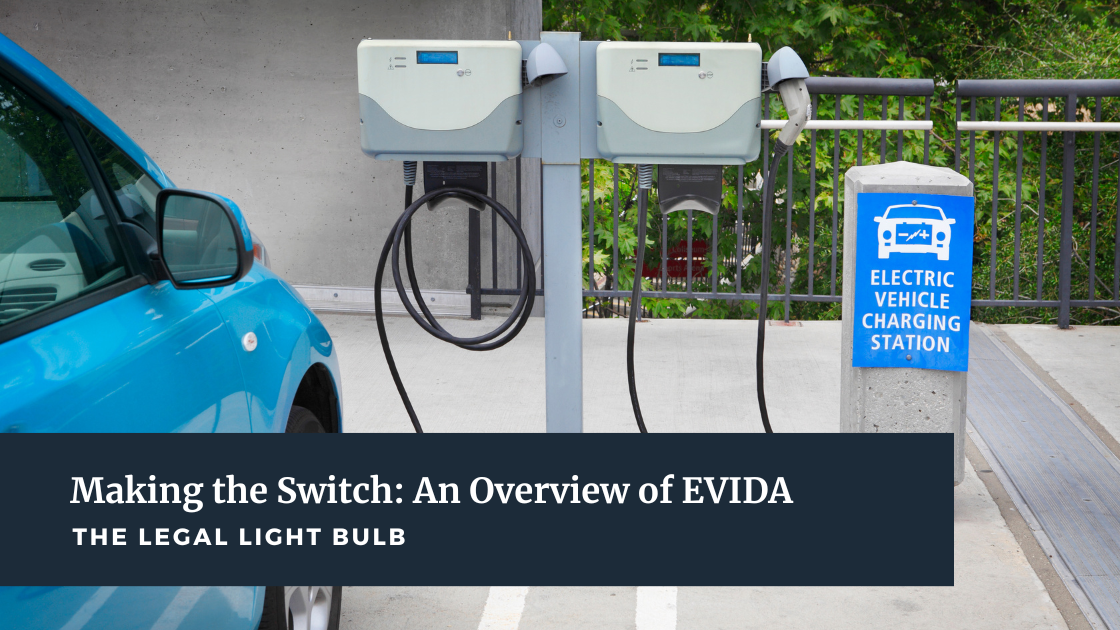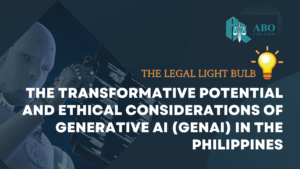With the recent increase in prices of oil and other petroleum products in the Philippines, the demand for electric vehicles (EVs) has been projected to grow exponentially in the country.[1] Owing to these back-to-back price hikes, EVs are growing to be more and more palatable to consumers who are not only looking to save money but are also shifting to a more environmental-friendly lifestyle. In the Philippines, it goes without saying that the impact of motor vehicle emissions in our day-to-day lives dramatically alters how we cope and move with life.
In light of this, Congress deemed it appropriate to create a law that promotes, regulates and supports the electric vehicle movement and industry to encourage public and private use of electric vehicles with the goal of protecting the health and well-being of people from the hazards of pollution and the greenhouse effect.[2]
Thus, on 15 April 2022, the Electric Vehicle Industry Development Act, or EVIDA lapsed into law. It seeks to promote the development of electric vehicles and charging infrastructure in the Philippines by providing an enabling environment for the development of electric vehicles, including options for micro-mobility as an attractive and feasible mode of transportation to reduce the country’s dependency on fossil fuels and promote innovation in clean, sustainable, and efficient energy to accelerate social progress and human development. The EVIDA is the government’s response to the rapid development of electric vehicles in our country.
Scope and Application of EVIDA
The EVIDA applies to the manufacture, assembly, importation, construction, installation, maintenance, trade and utilization, research and development, and regulation of electric vehicles, charging stations and related equipment, parts and components, batteries, and related support infrastructure.[3]
Mandatory EV Share in Corporate and Government Fleets
To reach the goal of increasing the usage of electric vehicles in the country, the following entities shall ensure that at least five percent (5%) of their fleet shall be EVs, whether owned or leased within the time-frame indicated in the CREVI:
- Industrial and commercial companies
- Public transport operators
- LGUs, NGAs, and GOCCs
Incentivizing EV Manufacturers, Importers, and Users
To encourage and attract manufacturers, importers, and consumers to actively take part in the promotion, production, and usage of EVs in the country, possible entitlement to tax incentives and non-fiscal incentives shall be granted to those qualified.
Manufacturers who shall manufacture and assemble EVs, charging stations, batteries, parts, and components may be entitled to incentives provided under the CREATE Law after undergoing an evaluation process. Moreover, expert foreign nationals shall be allowed to be employed under a form of the technology transfer agreement.
On the other hand, importers of completely built units of EVs shall be entitled to the incentives provided under the TRAIN Law. The BOC grants EV manufacturers and importers alike expeditious processing on the importation of parts and components for the manufacture and assembly of EVs. Eight (8) years from the effectivity of EVIDA, importation of completely built charging station units shall be exempt from payment of duties. However, in the case of imported electric jeepneys and tricycles, incentives may be suspended to protect our local manufacturers.
To entice more people to make the switch, EV users shall be granted non-fiscal incentives such as priority in registration and renewal, issuance of a special type of vehicle plate, and exemption from the number-coding scheme. For Public Utility Vehicle (PUV) operators, incentives include expeditious processing of franchise applications to operate as PUV operators for those that are exclusively utilizing UVs, and TESDA training programs on EV assembly, use, maintenance, and repair for its employees.
Future of the EV Industry in the PH
Evidently, the Philippines is staying the course and is steadily on board the ongoing global shift to EVs with the passage of EVIDA. With the goal of achieving local EV production targets by 2030, EVIDA is definitely a great driving force that can propel the electric vehicle industry towards a stronger and more stable position in our country.
Written by: Marc Renzo Mandocdoc
[1] Villadolid, R. “Philippine Electric Vehicle Industry Growth Agenda”. https://boi.gov.ph/wp-content/uploads/2018/03/Electric-Vehicle-Industry-Roadmap.pdf, last accessed 25 September 2022
[2] Section 2 (D), EVIDA Law
[3] Section 3, EVIDA Law





